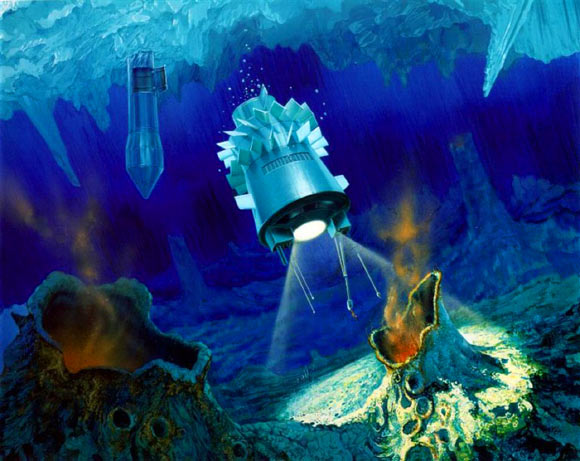Researchers on the AstRoMap project, a coordination action supported by the European Commission, have surveyed the state of the art of astrobiology in Europe and beyond and produced the first European roadmap for astrobiology research.

Artist’s concept of a cryobot in the ocean of Jupiter’s moon Europa. Image credit: NASA.
In the context of this new roadmap, astrobiology is understood as the study of the origin, evolution, and distribution of life in the context of cosmic evolution; this includes habitability in the Solar System and beyond.
This makes the roadmap a transdisciplinary document of relevance for many communities, from astronomers to planetary scientists and from atmospheric physicists to life scientists.
While it addresses life beyond our planet, topics it puts forward are also very relevant to life in extreme environments on the Earth and to the understanding of our evolving ecosystem.
The roadmap identifies five research topics, specifies several key scientific objectives for each topic, and suggests ways to achieve all the objectives in a stepwise approach (in the short -within the next decade-, medium -within the next two decades-, and long -beyond 20 years- terms).
The five research topics are:
(i) origin and evolution of planetary systems;
(ii) origins of organic compounds in space;
(iii) rock-water-carbon interactions, organic synthesis on earth, and steps to life;
(iv) life and habitability;
(v) biosignatures as facilitating life detection.
The roadmap was published online March 22, 2016 in the journal Astrobiology.
_____
Horneck Gerda et al. 2016. AstRoMap European Astrobiology Roadmap. Astrobiology 16 (3): 201-243; doi: 10.1089/ast.2015.1441







